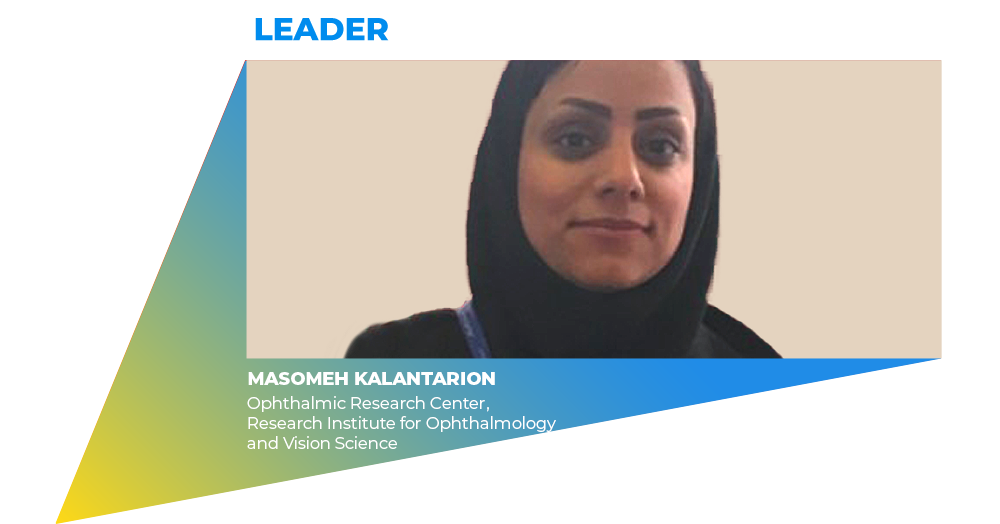Join a powerful, unprecedented alliance for better eye health for all.
Join IAPB-
Choose an alternate language here

In the past decade, Masomeh began a research career in eye health. She had been a field supervisor for a regional team and published Rapid Assessment of Avoidable Blindness project in the country. She has been a Co-PI of an eye health literacy and self-care undertaking on age-related eye diseases in Tehran. In 2015, she contributed to the evaluation of the DM and DR management system (WHO-TADDS) in Iran. She conducted critical interviews with key stakeholders and later contributed to the publication of the evaluation. This work was conducted in collaboration with WHO country office and adopted by the country Eye Health and Prevention of Blindness Office for policy making on DR. She is a PhD candidate in Medical Education and collaborated with Sharif University of Technology and the Department of Ophthalmology of Shahid Beheshti Medical University (SBMU) in the design and development of the OPSIM, a virtual reality simulator for cataract surgery for residents. This project is ongoing and has been very helpful in surgical training continuity in the midst of COVID-19 pandemic.
During 2017-2019, she had an opportunity to cooperate with the University of Aarhus in Denmark in a joint project to model and evaluate a community-oriented mHealth-based screening and promotional program for improving eye health in a district in Iran as a lead co-investigator. This project has three peer-reviewed publications. Her active project engagement is as follows: developing a standard protocol for eye diseases registration, Iran’s Diabetic Retinopathy Care 360 ° Actions (a WHO-sponsored project), validation and reliability of two smartphone applications for visual acuity, and a project on inequitable distribution of resources and ophthalmologists throughout the country.
Masomeh has a passion for human sight and has had solid contribution in national ophthalmology development. She carries remarkable teamwork skills; communicates clearly, is aware of interpersonal dynamics, and respects team members’ participation. She exhibits an efficient problem-solving approach.
“Since the eye is one of the most vital parts of our bodies, training specialist workforce (ophthalmologists, optometrists, and allied eye health care workers) is crucial. On the other hand, I believe increasing public awareness of eye diseases through educational programs constitutes another pillar to strengthen eye health. Medical education experts help society to receive better eye health services; and fair distribution of the educated workforce, prevents blindness. I have chosen to plan and manage educational programs and the associated challenges, using new technology and solutions.”
– Masomeh Kalantarion